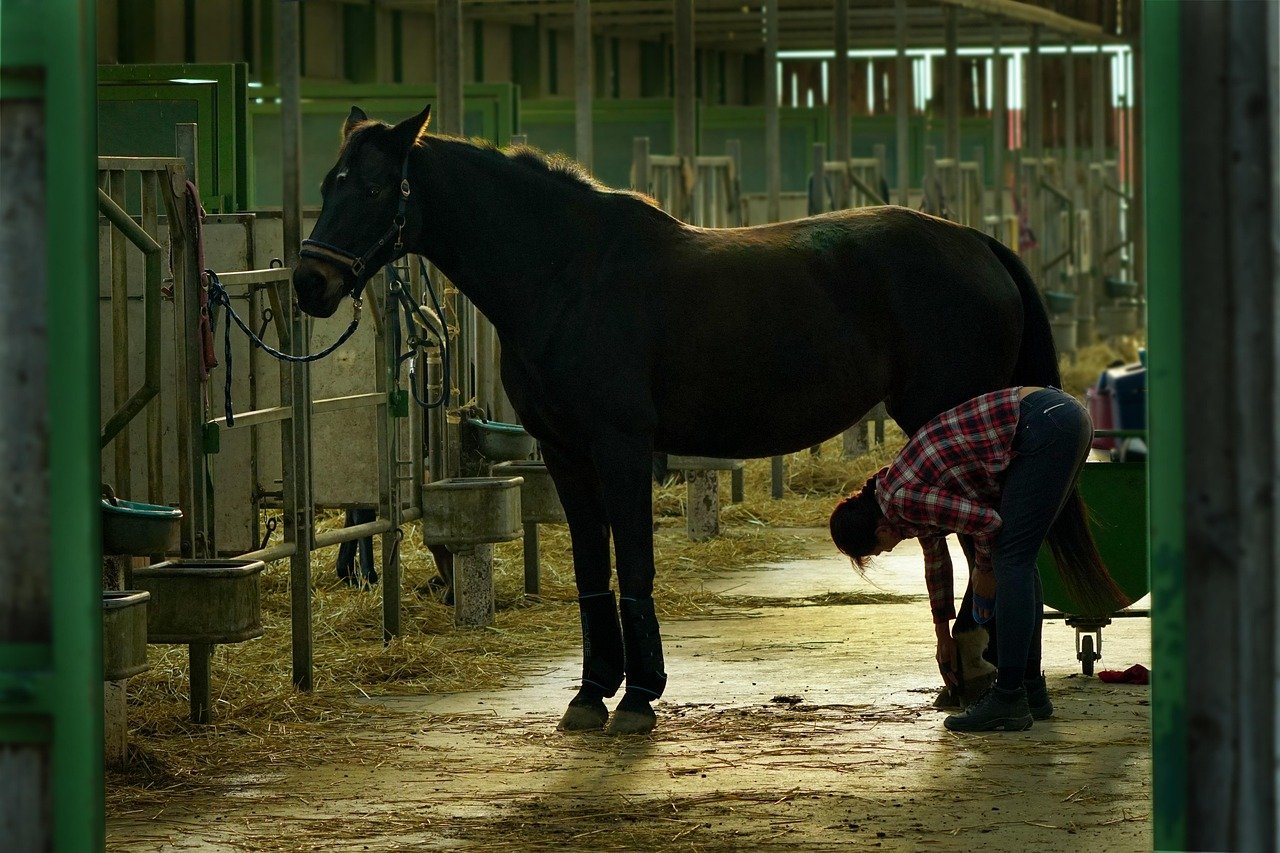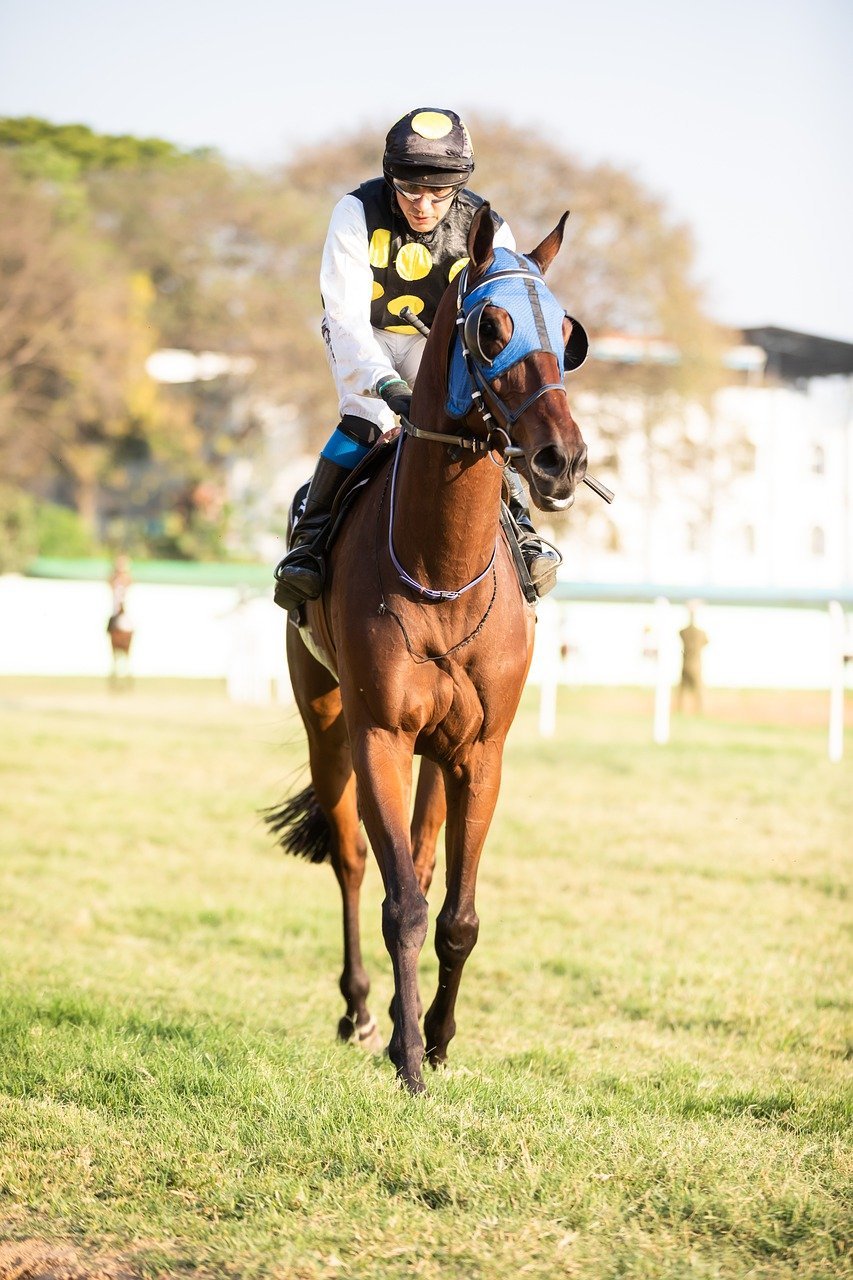Traveling or competing with horses can be a thrilling experience for both the rider and the horse. However, it often comes with its fair share of stress, particularly for our equine companions. Horses are naturally sensitive animals, and changes in their environment can easily lead to anxiety. Understanding how to manage and minimize this stress is crucial for ensuring their well-being and performance. Below are ten practical tips to help ease your horse’s stress during travel or competitions.
Understand Your Horse’s Behavior
Traveling and competing can be exciting experiences for horses, but they can also be stressful. Changes in environment, long trailer rides, and the hustle and bustle of competitions can cause anxiety and affect a horse’s performance and well-being. As a responsible owner, it’s important to recognize signs of stress and take steps to keep your horse calm, comfortable, and confident.
Every horse has its own unique personality and way of expressing stress. Observing and understanding your horse’s behavior is key to managing its stress levels. Look for signs such as restlessness, excessive sweating, or changes in appetite. Horses communicate through body language, so being attentive to these signals can help you intervene early. Knowing what calms your horse can also be beneficial. This might be a favorite treat, a particular grooming routine, or even just your presence. Remember, the more you understand your horse, the better you can support it through stressful situations.
Acclimate to New Environments
Introducing your horse to new environments gradually can significantly reduce stress. Start by taking short trips to familiar places. Allow your horse to explore and get accustomed to the surroundings at its own pace. This process helps build confidence and reduces anxiety when faced with unfamiliar settings. Think of it as introducing a child to a new school; the more familiar they become, the less daunting it feels. Make sure to reward calm behavior with treats or praise, reinforcing positive associations with travel and competitions.
Maintain a Consistent Routine
Horses thrive on routine, and maintaining a consistent schedule can alleviate stress. Try to keep feeding times, exercise, and grooming as regular as possible, even when traveling. This consistency provides a sense of normalcy and stability, reducing anxiety. For instance, if your horse is used to being fed at 7 AM, try to stick to that time, even on the road. A stable routine acts like a comforting anchor amidst the chaos of travel and competition.
Provide Adequate Rest
Just like humans, horses need sufficient rest to function optimally. Long travels or intense competitions can be taxing, so ensure your horse has ample time to relax and recuperate. Plan your travel itinerary with regular breaks to allow your horse to stretch its legs and rest. In competitions, ensure they have a quiet space to retreat to after events. Think of your horse as a marathon runner; without adequate rest, performance and well-being will inevitably decline.
Hydration is Key
Keeping your horse hydrated is crucial, especially during travel and competitions. Stress can often lead to dehydration, which can have severe health consequences. Always provide fresh water and encourage your horse to drink regularly. Consider offering electrolyte supplements, particularly in hot weather or after strenuous activity. Hydration is like the oil in a car engine; without it, everything grinds to a halt. Regular water breaks can make a significant difference in your horse’s comfort and stress levels.
Use Calming Supplements Wisely

Various calming supplements are available on the market that can help reduce horse stress. However, it’s essential to use them wisely and consult with a veterinarian before administering any new product. These supplements can provide additional support but should not replace good management practices. Think of them as a safety net rather than a primary solution. Be cautious and informed, ensuring any supplement used is safe and appropriate for your horse’s needs.
Ensure Comfortable Transportation

The way a horse is transported can greatly affect its stress levels. Ensure the trailer is comfortable, safe, and well-ventilated. Adequate space, secure footing, and a smooth ride are crucial. Adding familiar items, like your horse’s favorite hay or a stable blanket, can provide comfort during the journey. Imagine traveling in a cramped car for hours; comfort and safety are paramount to reduce anxiety and stress. Check all equipment and vehicle conditions to ensure a smooth and stress-free travel experience.
Incorporate Relaxation Techniques
Incorporating relaxation techniques can be incredibly beneficial for calming your horse. Techniques such as massage, gentle grooming, or playing soothing music can help ease tension. Some horse owners find success with aromatherapy using horse-safe essential oils. These methods are akin to a spa day for your horse, offering a break from the stress of travel or competition. Experiment with different techniques to find what works best for your horse, ensuring they are always comfortable and willing.
Foster a Positive Environment

A positive environment can drastically reduce stress for your horse. Try to remain calm and confident, as horses often pick up on their handlers’ emotions. Surround your horse with familiar people and animals whenever possible. A supportive and calm atmosphere acts like a buffer, protecting your horse from the stresses of travel or competition. It’s much like having a supportive friend during a nerve-wracking presentation; their presence can make all the difference.
Prepare for Emergencies

Preparation is key when it comes to managing stress. Have a plan in place for emergencies, including a first-aid kit and contact information for a veterinarian. Knowing you’re prepared can alleviate your stress, which in turn can help keep your horse calm. Think of it as packing an umbrella; even if it doesn’t rain, you’re ready for anything. Being prepared not only ensures safety but also instills confidence in both you and your horse.
In conclusion, managing stress in horses during travel or competition is all about understanding and meeting their needs. By providing a stable routine, proper care, and a calming environment, you can help ensure your equine friend remains happy and healthy, no matter the journey or the challenge.





